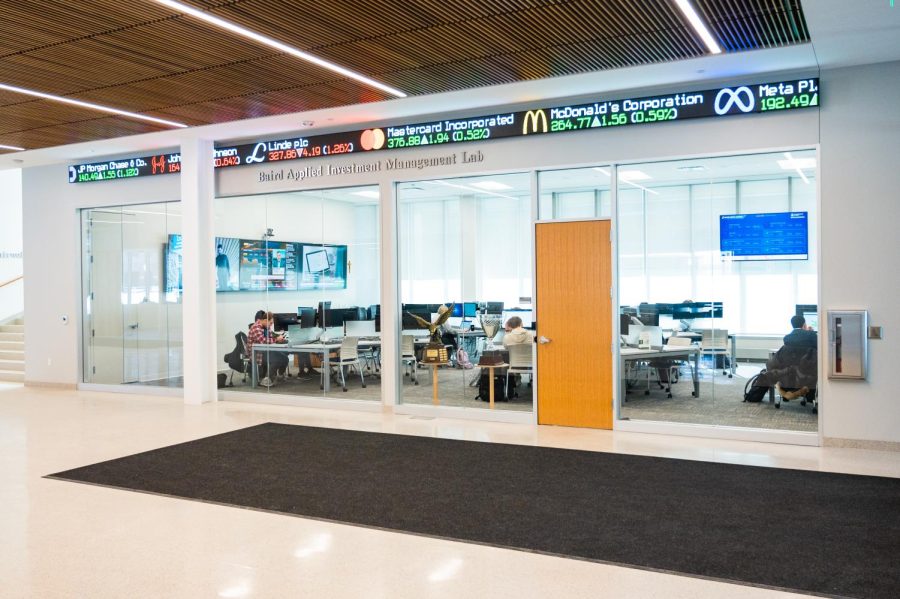Students and faculty in the College of Business Administration are beginning to see the effects of the curriculum changes put in place two years ago, where students are seeking internships in their college careers.
“We have basically made a curriculum shift of moving our business courses literally in sequence one year earlier” said Joseph Terrian, assistant dean of the College of Business Administration.
In previous years, students who began in the College of Business Administration as freshmen would start with courses such as finite math, history, theology or sociology.
Now freshman typically take financial accounting, one of two calculus courses and several other business leadership-based classes their first semester. This provides students the opportunity to take courses that used to be considered upper-level, such as marketing and supply chain management, their sophomore year.
In addition to moving introduction business classes earlier in the curriculum and suggesting that students take university core classes as upperclassmen, the College of Business Administration implemented new and redesigned classes such as Business Day 1. This class is designed to give students an overview of all the majors and resources of the college. They also restructured some of the aspects of the leadership education & development (LEAD 1001) sequence of courses.
“Now students are internship-ready sophomore year instead of junior year,” Terrian said.
The changes in the curriculum resulted from employers offering jobs to business students prior to the start of senior year.
“We need to prepare students earlier and employers keep telling us that they want students with more work experience,” Terrian said. “What is driving this more than anything is employers wanting access to our students and to be competitive with other universities or students that are applying, they want more work experience.”
Additionally, professors within the College of Business Administration took steps to adopt more applied learning experiences into their curriculum. Students gain additional experience in their fields of interest and stand out when it comes to finding future employment.
“Applied learning is crucial to business education, particularly in a competitive job market and a world with expanding technology,” said Jodi Gissel, assistant professor of accounting, in an email. “While this has always been important, students are often now competing in a global market due to the internet and social media as well as video conferencing.”
Students noticed and appreciated the curriculum changes, particularly since some core business classes were moved to their first semester at Marquette, allowing them to consider different majors sooner.
“I never really thought that I would want to do accounting, but I did well in that class and they talked to me about being an accounting major and it has made me think about it,” said Ryan Febus, a freshman in the College of Business Administration.
Having students try these courses at the beginning of their academic career allows them to narrow their interests and focus on specific fields earlier.
“I have so many more opportunities and I feel that I am really far ahead in the curriculum itself,” said Nathan Anderson, a sophomore in the College of Business Administration. “That opens up a lot more doors a lot earlier.”
The relationship that the College of Business Administration developed with employers was one of the key components for changing the curriculum as well as redesigning some courses.
“I think it was a whole combination of things,” Terrian said. “I think it’s this constant listening to what employers want and doing the best we can to prepare students for the work force.”












